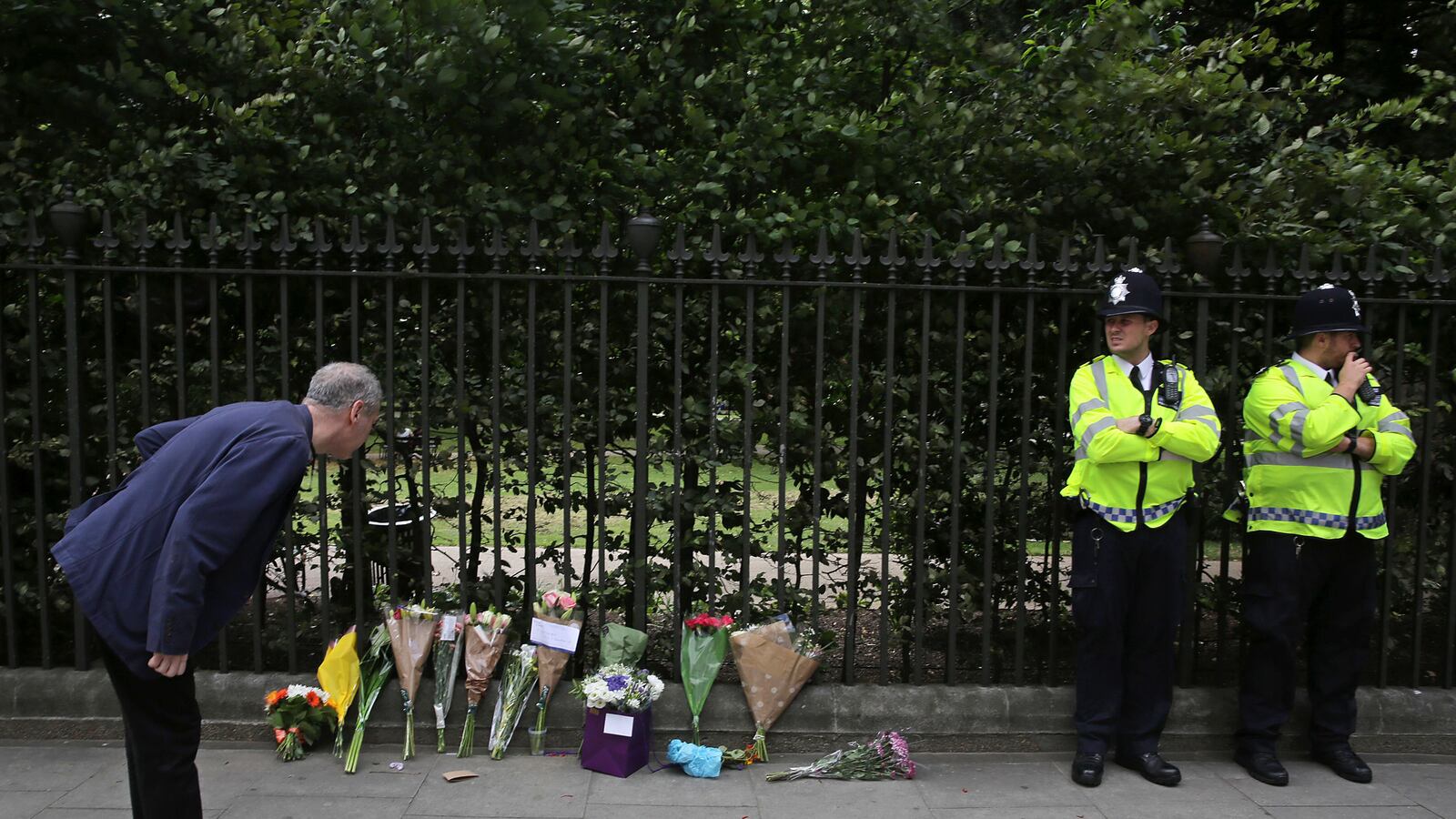Londoners woke up this morning to find armed police patrolling their streets after a mass stabbing outside a city-center subway station on Wednesday night stoked fears that the capital would soon be the target of a full-blown terror attack.
It has now been confirmed that the dead woman was a U.S. citizen and the attacker was a Norwegian of Somali origin. The area where the attack happened, Russell Square, is home to many cheaper and mid-price hotels, and several of the injured are also believed to be tourists.
The authorities are now seeking to establish whether the incident was inspired by jihadists, in common with the spate of recent attacks in Europe, or the result of a catastrophic mental health breakdown on the part of the attacker, and leaning toward the latter scenario.
Police sought to calm nerves by stressing in an early-morning statement that “mental health” was a “significant factor” in the case, although they conceded that “terrorism” was “a line of inquiry” in the incident, which took place in the early hours of Thursday in London’s Russell Square near the British Museum and Great Ormond Street Hospital.
Russell Square was one of the targets during the 7/7 terror attacks on London in 2005, when 26 people were killed after a suicide bomb was detonated on the Underground there aboard a Piccadilly Line train.
Witnesses said that the attacker Tuesday morning appeared to be “slashing people at random” in the street and described a body lying in a pool of blood.
One hotel worker told the London Evening Standard: “There was a madman running around with a knife just lunging at people randomly and stabbing them. People didn’t realise what was happening until they saw the knife, then everyone ran.”
In a grim irony police had announced on Wednesday the deployment of a new rapid reaction squad of 600 specially trained anti-terror police, and armed officers from the new unit soon flooded the area, where a 19-year-old man was swiftly arrested and taken into custody.
While most Londoners viewed the stabbing as an act of criminal insanity, the incident will naturally add to concerns that another mass terror incident in the capital is all but inevitable; the chief of the Metropolitan Police, Bernard Hogan-Howe, said over the weekend that an attack on London is a matter of “when not if.”
It was Assistant Commissioner Mark Rowley who said Thursday that early indications suggest mental health played a “significant factor” in the attack but terrorism remains “an active line of inquiry.”
“As a precaution Londoners waking up today may notice an increase in armed officers on the streets. This is to provide reassurance and ensure people’s safety,” said Rowley.
“We ask the public to remain calm, aware and alert.”
On the whole, Londoners were doing just that.
One Londoner who lives in nearby Marylebone told The Daily Beast, “It feels more like a mental health issue to me than a possible terrorist issue. Terrorists usually aim for rush hour, busier times, or more famous locations. It certainly added nothing to the threat in my opinion, as the threat just feels present given the frequency of nearby European attacks.”
A 42-year-old marketing director told The Daily Beast, “I got off the tube at Oxford Circus this morning. There was no noticeable additional police presence but a palpable sense of unease.”
He said, “Reports that it was mental health-driven did reassure me somewhat—it’s a far more widespread issue than terrorism and I’d prefer knives to bombs any day of the week. But I grew up in late ’70s and ’80s London, so the IRA is not too distant a memory and recent global incidents do make me wonder whether the day I next come to work will be the day I don’t come home.”
Rowley, the assistant police commissioner, said today, “While the investigation is not yet complete, all of the work that we have done so far increasingly points as having been triggered by mental health issues.
“At this time we believe this was a spontaneous attack and that the victims were selected at random,” he added.
Rowley emphasized: “So far we have found no evidence of radicalization that would suggest that the man in our custody is in any way motivated by terrorism.”






